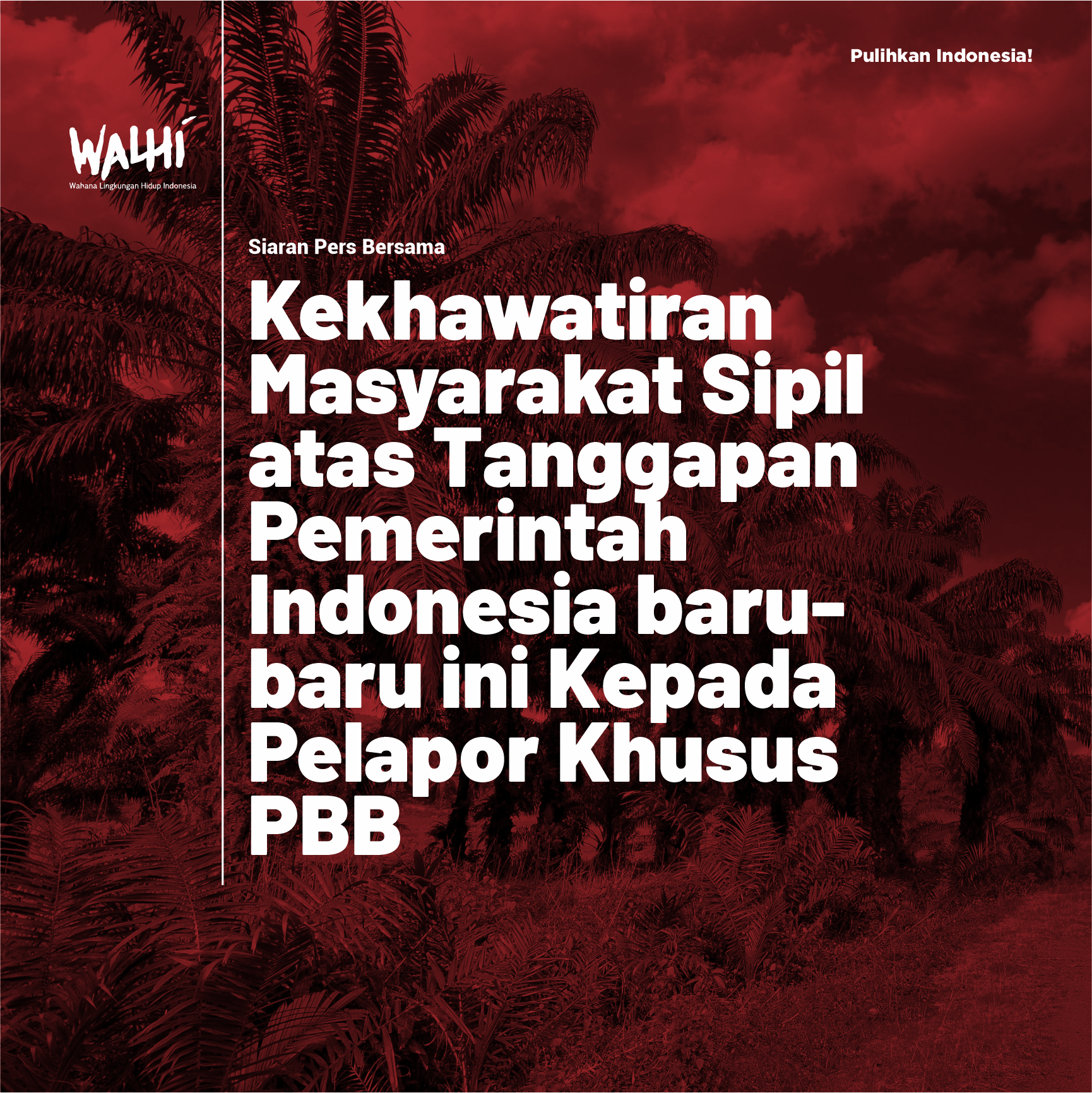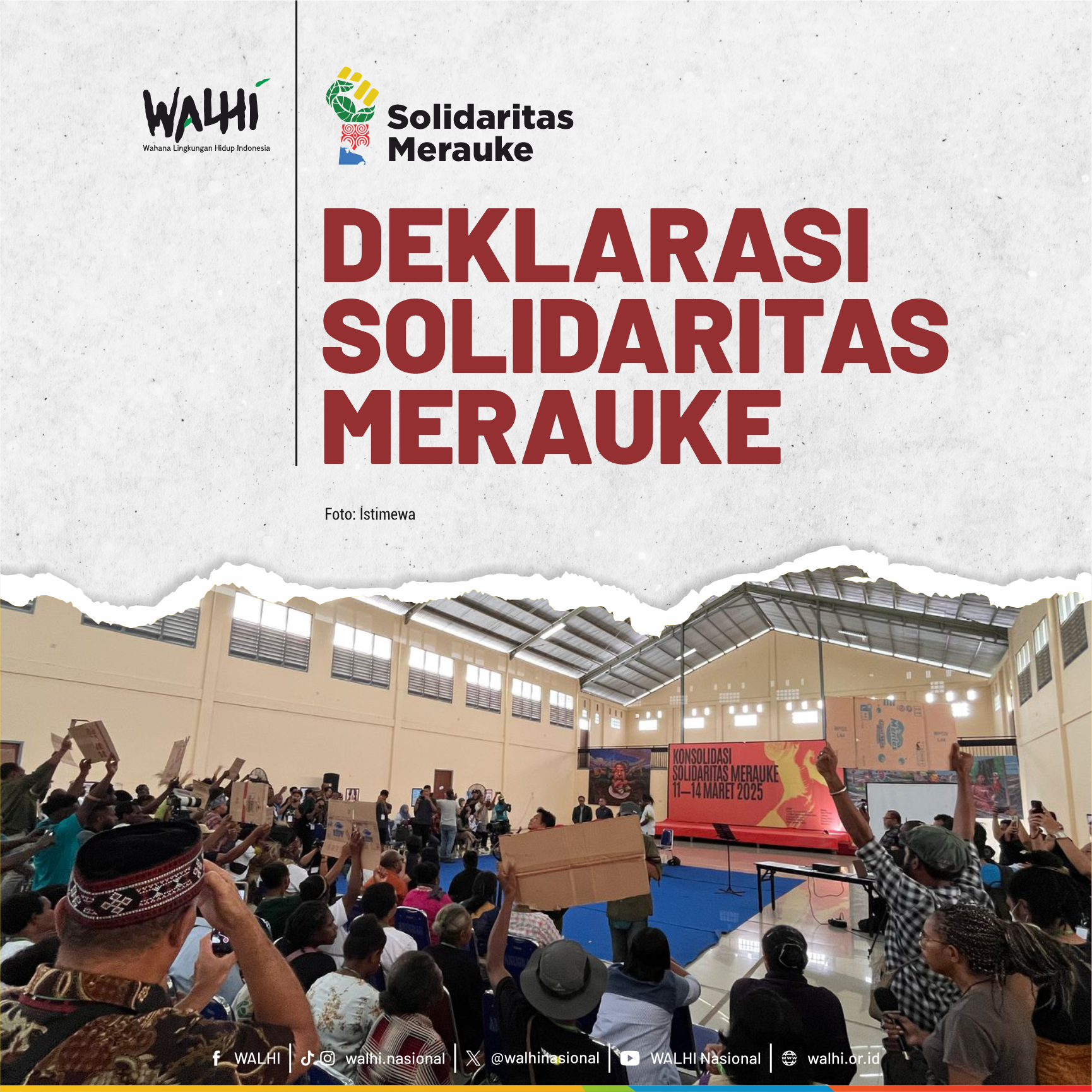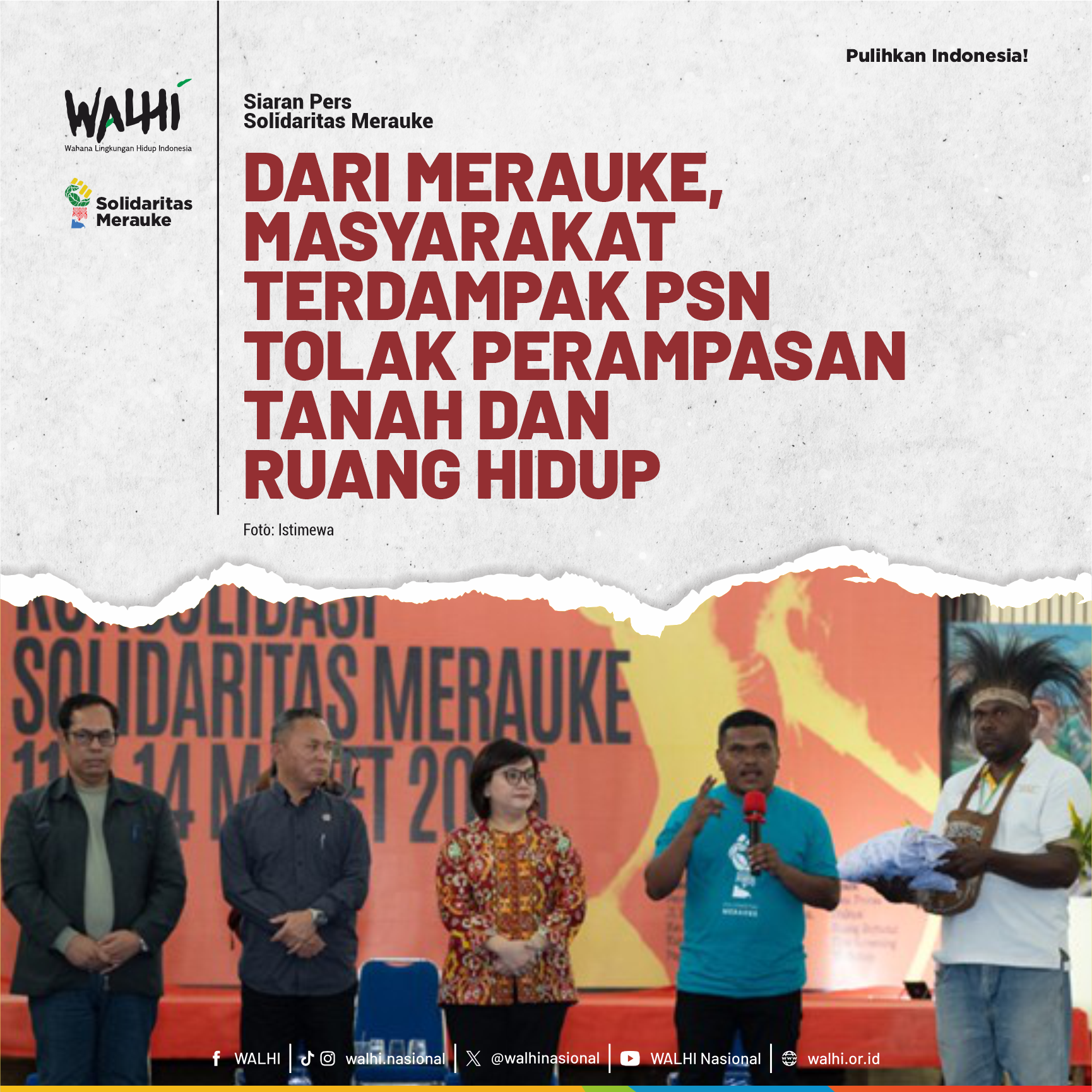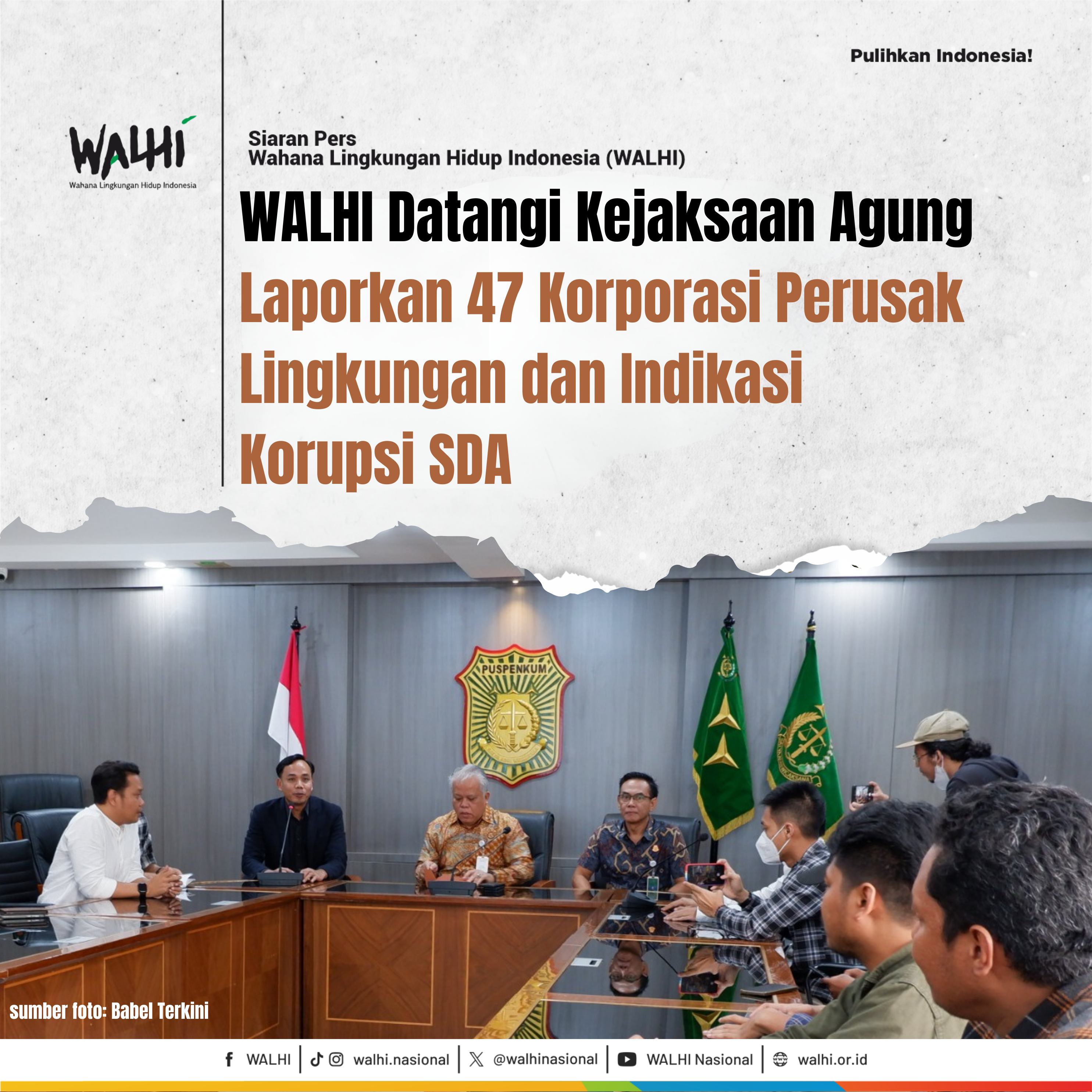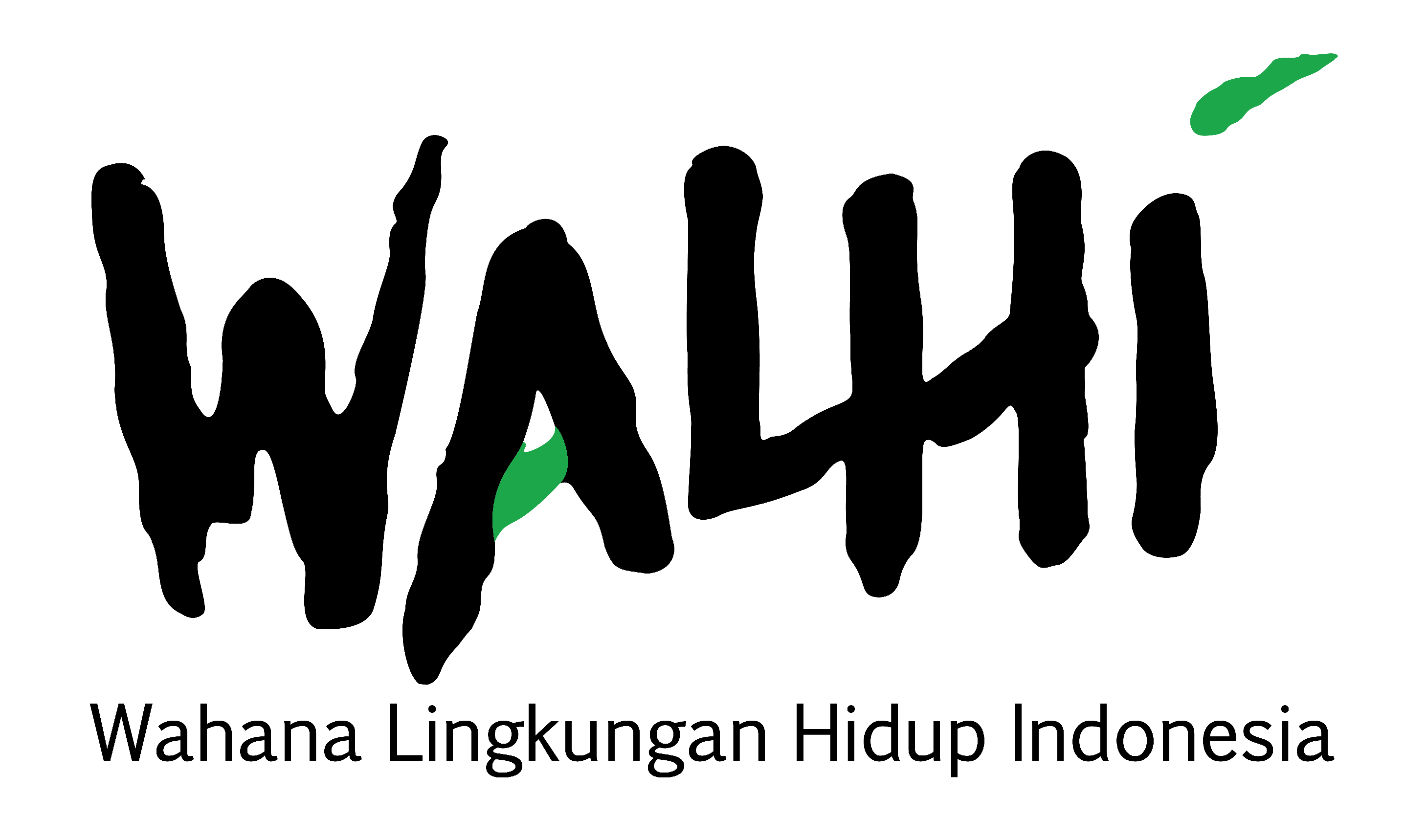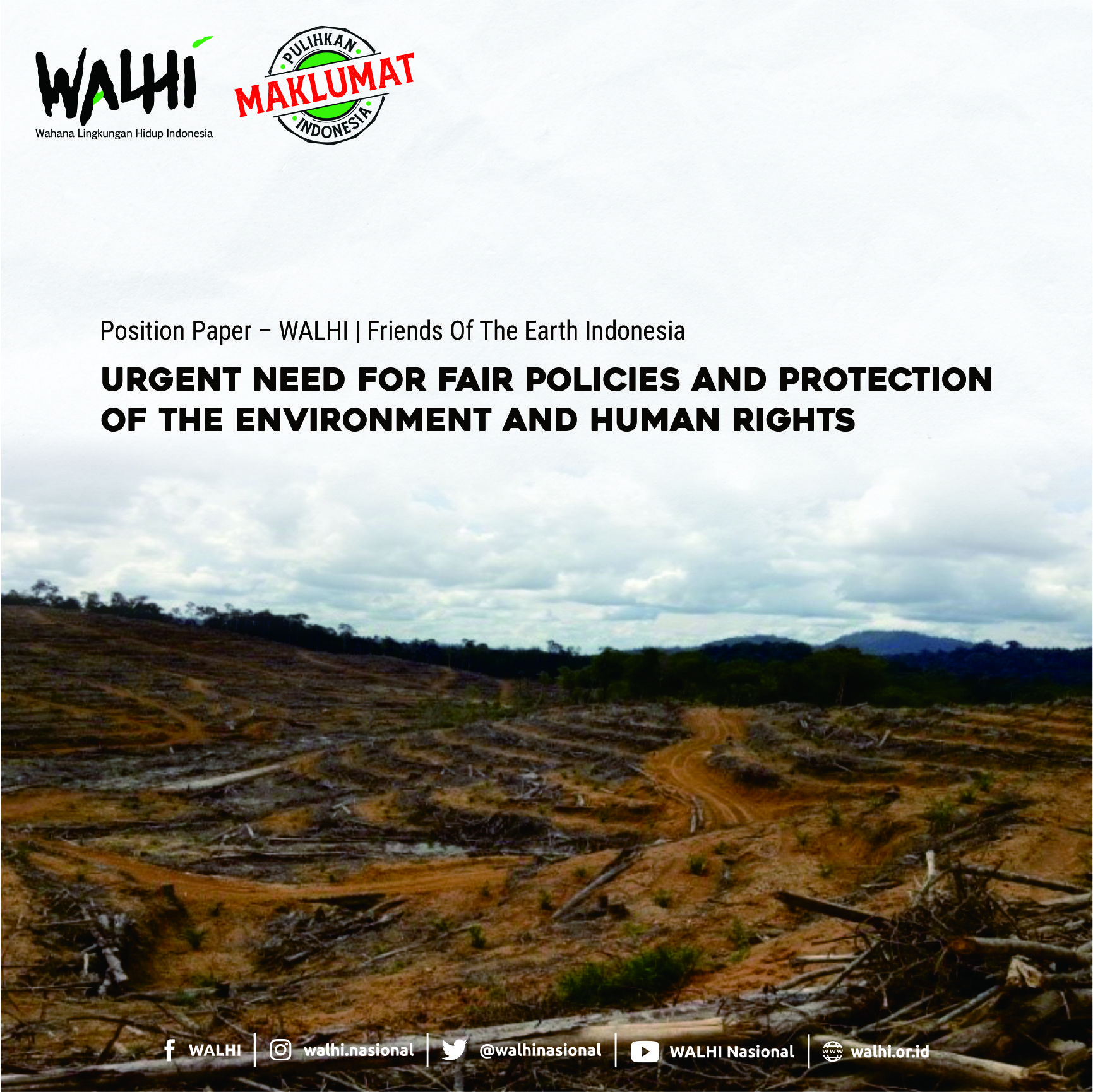
Position Paper – WALHI | Friends Of The Earth Indonesia
Urgent Need For Fair Policies And Protection Of The Environment And Human Rights
Indonesia suffered a tremendous loss and sacrifice the lives of many of its own citizens when it became the world's largest producer and exporter of palm oil. The country lost extensive part of its forest areas and many essential ecosystems such as peatlands. Many local and indigenous communities became victims of land-grabbing and lost their sources of livelihood, their jobs, access and control over food sources and even lost their lives. Their human rights and their intergenerational justice were affected.
Currently, the oil palm plantation area in Indonesia has reached over 14,9 million hectares and 60% of it (over 9 million hectares) is owned by big corporations. Whereas 2,74 million farmers only manage 5 million hectares of local oil palm plantation. If we examine the reality further, over half of what is called “people’s or plasma oil palm plantation” is managed by local landlords which come from political and government elites in the regions, and other investors. Or they are oil palm plantations that are managed through the scheme of plasma partnership such as Village Cash Plantations, Village Community Plantations, and others that benefit corporations and not the people.
The continuous expansion of oil palm cannot be separated from the global demand from developed countries including countries of the European Union. Especially, since the implementation of the Renewable Energy Directive in 2008, oil palm consumption for biodiesel in the EU has significantly increased. This consumption is satisfied through the palm oil exports and Indonesia is the country to fulfill this demand. Indonesia only had 200 hectares of oil palm-planted land in 1980, in 2009 it was already 7.2 million hectares and now the area of oil palm plantation has taken over up to 14.9 million hectares of land.
Besides controlling the land, these giant company groups also control the oil palm processing industry such as crude palm oil (CPO) and its derivative commodities. The control over the oil palm business from upstream to downstream creates dominant corporate intervention in government policy process. This leads to policies that do not benefit the local community. It impacts the equity of the access and control of the land for communities. The corporations determine the prices they get for their produce all along the production chain.
The Indonesian framework of environmental, social and governance due diligence is weak and does not act as a safeguard for the oil palm business. It does not cover the entire supply chain. The standard of the roundtable on sustainable palm oil (RSPO) certification is not being complied with by corporations, but they still get certified. Other sustainable initiatives such as ISPO, the companies’ policy of ‘no deforestation, no peat, and no exploitation’ (NDPE), corporate social responsibility, and high carbon stock approach (HCSA) are equally not being complied with.
An examination of ten study cases in the Indonesian palm oil sector conducted by WALHI, FPP, TUK, and PUSAKA revealed that the plantations and oil palm factories owned by Astra Agro Lestari group, First Resources, and Golden Agri Resources-Sinar Mas and Salim (Indofood) are tied to severe social and environmental damage. The evidence of human rights violations includes the rejection/denial of the rights of indigenous people, land-grabbing of the community without consent, forced evictions, environmental rights violations, discriminations, abuse, criminalization and casualties from the human rights defenders. Cargill, Nestlé, PepsiCo, Unilever, Wilmar International, Archer Daniels Midland and AAK buy from these palm oil groups.
Deforestation
In addition to the large number of granted permits for oil palm plantation companies, a great deal of forest conversion licenses are also provided to corporations, especially corporate plantations. From 1984 until 2021, there have been at least 7,3 million hectares of forest released with 6,9 million or 94% for agro-business plantation. 1 From 2014-2021 1.2 million hectares was granted.
... to continue reading, please download link below.
[Urgent Need For Fair Policies And Protection Of The Environment And Human Rights]


